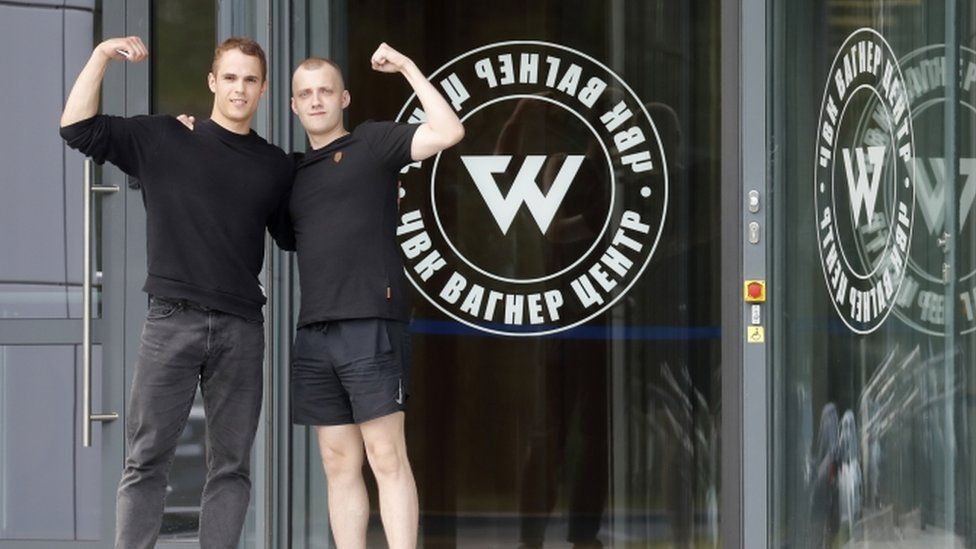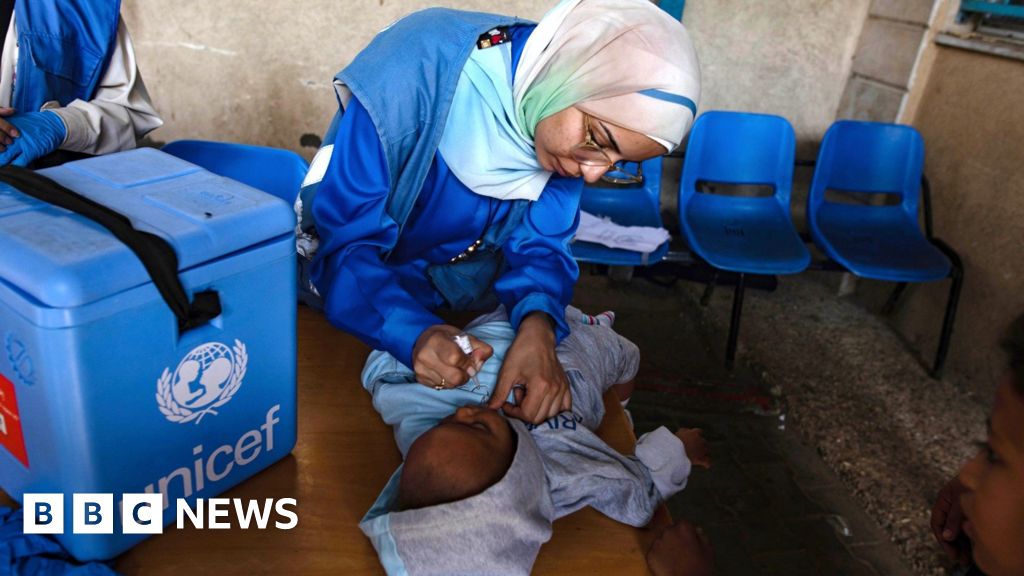ARTICLE AD BOX
 Image source, EPA
Image source, EPA
Wagner recruitment offices are operating as normal
By Sarah Rainsford
BBC Eastern Europe correspondent
The Wagner Group is still recruiting fighters across Russia, days after staging a mutiny that led Vladimir Putin to raise fears of civil war.
Using a Russian phone number, we called more than a dozen recruitment centres, saying if asked that we were inquiring on behalf of a brother.
All those who replied confirmed that it was business as usual.
From Kaliningrad in the west to Krasnodar in the south, no one believed the group was being disbanded.
In the Arctic city of Murmansk, a woman at the Viking sports club confirmed that she was still signing up fighters for Ukraine.
"That's where we are recruiting for, yes. If someone wants to go, they just have to call me and we'll set a day."
Wagner's long list of contact points are mostly based at fight clubs, including martial arts schools and boxing clubs.
Several people who picked up the phone stressed that new members were signing contracts with the mercenary group itself, not the Russian defence ministry.
"It's absolutely nothing to do with the defence ministry," a man at the Sparta sports club in Volgograd was adamant. "Nothing has stopped, we're still recruiting."
The demand for the mercenaries to transfer to the defence ministry, thus bringing the Wagner Group and its boss Yevgeny Prigozhin to heel, was at the root of the fierce feud that exploded into last weekend's armed uprising.
It was the biggest challenge to President Putin's authority in his more than 20-year rule, despite the Kremlin's scrambling ever since to redefine his response as strong and decisive.
And yet the criminal case against the mutineers has been dropped, in a country where multiple opposition activists are serving long prison sentences just for speaking out against Russia's war on Ukraine.
Sarah Rainsford called more than a dozen Wagner recruitment offices (photo: Matthew Goddard)
Even Wagner's leader has been allowed to go free, apparently moving to Belarus - although Prigozhin's private jet was tracked flying back to Russia on Tuesday night.
And his army, which marched on Moscow and shot helicopters and a plane out of the sky, has still not been disbanded.
"We are working. If something had changed, they'd have told us. But there's nothing," a female recruiter in Krasnodar, southern Russia, was clear.
A Wagner fighter's salary remains a generous 240.000 roubles a month; the contracts are for six months.
On Thursday, the chair of the defence committee in Russia's parliament said that Prigozhin had been warned earlier that the deadline for Wagner to be subsumed by the MOD was non-negotiable.
"The Defence Ministry said all groups…must sign contracts, and they all began doing that. Everyone except Mr Prigozhin," Andrei Kartapolov commented, referring to his mutiny as an act of treason.
"He was informed that Wagner would not participate in the Special Military Operation," he used Russia's euphemism for its war on Ukraine. "It also would get no financing or material resources."
Vladimir Putin, who has spent years denying any official link to Wagner, made a sudden U-turn in the wake of this weekend's mutiny. Apparently trying to cut Yevgeny Prigozhin down to size, he claimed that the group was 100% funded by the Russian state.
The practicalities of Wagner's survival, then, are unclear.
On Saturday, Mr Putin signed a law which means only the defence ministry can now recruit in Russian prisons, previously a key source of fighters for Ukraine for Wagner.
But the group's broader recruitment drive continues.
In Volgograd, the man we spoke to said that if someone signed up today, "I could deploy him tomorrow," and confirmed that Belarus was now a possible destination.
Earlier this week, Belarusian President Alexander Lukashenko - who has relished describing his role mediating an end to Saturday's uprising - said that Wagner fighters were welcome there.
He suggested the Belarusian army had much to learn from them.
A Belarusian member of Wagner who goes by the call-sign "Brest" hinted that the group would be good protection for Mr Lukashenko ahead of next year's parliamentary elections, in case there were more mass protests at his authoritarian rule.
In a video posted on Telegram and filmed in an unknown location, "Brest" also reminded subscribers that the Belarusian border was "less than 300km from Kyiv". It was a thinly-veiled threat.
There is still no sign that Wagner fighters are moving to Belarus, though.
"Everything's the same as before, for now. Nothing's changed," said a woman in Saratov, central Russia, confirming that she was still recruiting men to fight in Ukraine.
"Everyone goes to Molkino, as usual. To the training centre. They get all the information there," she added, apparently referring to a shooting range previously linked to Wagner in southern Russia.
So will anything change after 1 July, I wondered? "I hope not. I don't know. But people are still contacting us, of course."
Additional reporting by Anastassia Zlatopolskai

 1 year ago
36
1 year ago
36








 English (US)
English (US)